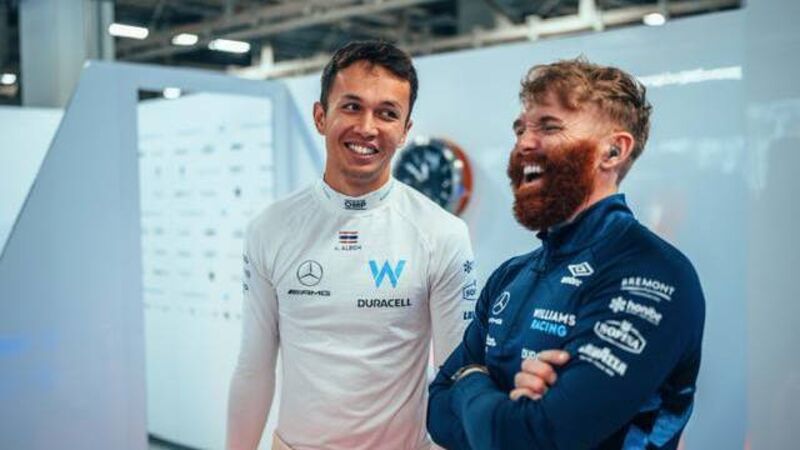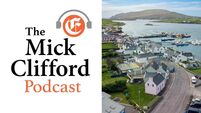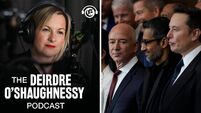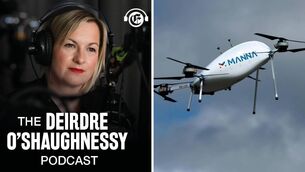Irishman Patrick Harding on life inside F1 as Alex Albon's performance coach

Patrick Harding with Williams Racing driver Alex Albon. He has been working with Albon for seven years now. File picture
Despite having no interest in motor sports growing up, Patrick Harding now works as an F1 performance coach — a job that came “out of the blue” for the Laois native.
“It wasn’t a sport that I watched or particularly followed. I got recommended to some people as a physio, did four rounds of interviews and didn't really know what the job was for until the last round,” he said.











